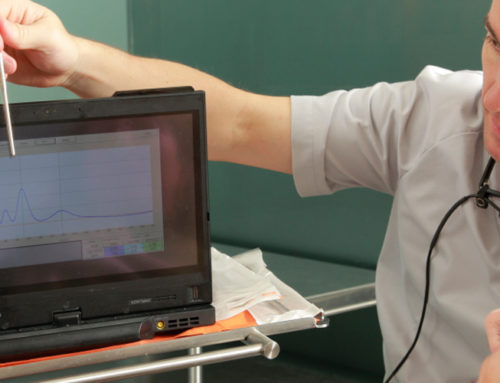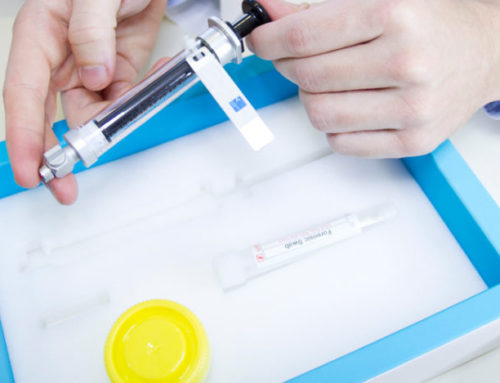There is a very important and frequent problem associated with the intake of certain foods included in diets to lose weight: the onset of bad breath.
55% of people do not perceive that they have bad breath, “says Dr. Jonas Nunes, director of the Institute of Breath, who adds: “The 16% of patients we receive in our practice come for this reason: bad breath associated with subsistence allowance”.
There are less than two months left until the summer and the particular “battle” to lose weight that we have every year when the good weather returns. Eliminating the extra kilos is not easy, so we enter the rush and the saying goes: “do not leave for tomorrow what you can do today.” Or, to put it another way: May is the starting signal for all those who decide, finally, to start the dreaded diet and end the excesses of the previous months.
The nutritionists are clear: last minute miracles do not exist. Eating less is not the solution; it’s all about re-educating ourselves nutritionally. An inadequate diet as a result of the last minute rush brings obvious risks to our health. “Unfortunately, we are far from changing our way of thinking,” says Pablo Zumaquero, Dietitian-Nutritionist and food technologist.
There is a very important and frequent problem associated with the intake of certain foods common in this type of diet: the appearance of bad breath. Garlic and onion are undoubtedly the most paradigmatic cases of foods prescribed by many nutritionists to lose weight, but we find many other foods present in this type of diet that can influence halitosis: vegetables such as artichoke, cabbage, cauliflower, kale or broccoli are some of the most common.
“These foods are very rich in sulfur, which can lead to the appearance of bad breath,” says Dr. Jonas Nunes, director of the Breath Institute. In this sense, Pablo Zumaquero adds: “The most important thing is to detect the cause of halitosis and attack it, because these products are part of a healthy diet and it is not convenient to remove them.”
Bad breath, a subject that remains taboo
The question is: is it possible to detect bad breath? Many people perceive it for themselves, since the intake of certain foods causes a bad taste or a dry mouth, a problem that can lead to halitosis. However, there is a significant percentage of people who are not aware of this bad breath or who do not see it as a problem but, simply, as an offensive comment on the part of the person making it. “In this way, society tends to blame and stigmatize the halitosis patient, who takes all the punishment and comments,” confirms Zumaquero. Diflucan over the counter
Along the same lines, Dr. Jonas Nunes states: “55% of patients do not perceive that they have bad breath. However, colleagues, partners and friends note that they do not say it because it is a taboo subject.” And he adds a revealing figure: “Precisely, 16% of the patients that we receive in our practice come for this reason: bad breath associated with diets.”
Now, is there any way to eliminate those extra kilos without fearing for our breath? In his book How to Take Care of Your Breath. The Definitive Guide, Dr. Nunes provides some keys: Flagyl over the counter
KEY Nº 1: EAT EVERY FOUR HOURS
Prolonged fasting tends to cause halitosis. The longer the fasting, the more intense the halitosis. The states of hypoglycemia (decreased blood sugar values) induce the body to use alternative metabolic pathways to replenish the blood sugar level (mainly from the conversion of proteins and fats). These metabolic processes generate malodor compounds. This conversion is important to lose weight, but there is no added benefit in causing extreme hypoglycemia triggering bad breath. Also the absence of mastication during a long period of time (with the consequent reduction of the salivary production) is a factor that contributes to this situation, resulting in a stagnation and consequent putrefaction.
Strategy:
- Make five meals a day (in small quantities and spread throughout the day). A handful of nuts is enough to avoid abrupt hypoglycemia and stimulate the renewal of saliva. http://fitstopphysicaltherapy.com/doxycycline-over-the-counter/
KEY Nº 2: AVOID A HIGH-PROTEIN DIET
High-protein diets (such as the popular Atkins, Dukan or South Beach) are the most likely to cause bad breath due to the high ingestion of amino acids (units elementals in the structure of a protein), because these molecules are used by bacteria for the production of bad odor compounds. A fact found in the laboratory. “After adding two amino acids (cysteine and tryptophan) to saliva samples, the appearance of the bad smell was immediately verified,” says Dr. Nunes.
Strategy:
- Avoid a diet based solely on foods rich in protein (and sulfur), such as meat, fish, red pepper, garlic, onion, broccoli, Brussels sprouts, oats, wheat seeds, dairy and egg white.
KEY Nº 3: INGEST A MINIMUM OF CARBOHYDRATES OR ACIDIC SUBSTANCES
Glucose is the substrate or “food” of several of the oral bacteria that predominate in saliva. This leads them to produce an acid pH that inhibits the proliferation of halitosis-producing bacteria, which act at alkaline pH. On the other hand, there are bacteria that can use both glucose and proteins as a substrate. In the absence of the first, they metabolize proteins (whose products have a bad smell and also contribute to the existence of a more alkaline pH).
Strategy:
- Opt for slow-absorbing carbohydrates like those available in strawberries, cherries, red fruits, vegetables, brown rice. Season your meals with a few drops of lemon. This way you will avoid, in addition, an excess of kilocalories.
KEY Nº 4: CONSUME SOLID FOODS RICH IN FIBRE
Foods richer in fibre provide more vigorous chewing and promote salivary production (unlike liquid or pasty foods). It should also be taken into account the absence of the scraper / cleansing effect that some solid foods exert when rubbed on the tongue, contributing to the elimination of detritus and the bacteria that produce the bad odor that accumulate on the tongue. It is emphasized that this is the most frequent cause of halitosis. Several studies have shown a clear increase in volatile sulfur compounds (VSCs) during the fasting period, a value that drops rapidly after ingestion of food without cosmetic odor, such as a piece of bread.
Strategy:
- Choose leafy vegetables (spinach, lettuce), carrots, asparagus, tomatoes, eggplant, and fruits in general (especially with peel). Cleaning the tongue three times a day with a tongue cleaner is also a very effective alternative.
KEY Nº 5: HYDRATE CONTINUOUSLY AND STIMULATE SALIVATION
Dehydration states, such as those related to reduced fluid intake, promote a decrease in the production of saliva, with the consequent stagnation of food residues in the mouth and subsequent degradation by oral bacteria. On the other hand, the decrease in salivary thickness promotes the volatilization of odor compounds dissolved in saliva.
Strategy:
- In addition to water (essential), drink liquids with a slight acid taste (such as cold lemon teas without sugar). A good option to stimulate saliva which is better than chewing gum are Japanese umeboshi plum pills, since they are indiscernible and stimulate more and better saliva.
KEY Nº 6: AVOID ALCOHOLIC BEVERAGES
In addition to being harmful for anyone who wants to eliminate those extra kilos, alcoholic beverages can also lead to the occurrence of bad breath. The oxidation of ethanol occurs initially in the mouth and, later, it becomes more predominant in the liver (being able to last several hours), resulting in various malodorous compounds, such as acetaldehyde. Alcohol is also a dehydrating agent, contributing to the volatilization of salivary malodour compounds.
Strategy:
- It is not advisable to consume alcoholic beverages. However, if you do, eat something solid right afterwards to stimulate the production of saliva.
KEY Nº 7: AVOID MEALS WITH INTENSE ODOR
After being ingested, the food is subjected to a set of chemical and physical transformations to become smaller compounds with the capacity to be absorbed. The nutrients pass through the permeable walls of the small intestine and through the bloodstream, reach the liver, where it is carried out, among other processes, the neutralization of certain compounds of bad smell. Odor compounds present in the blood are excreted generally through the lung along with other gases, such as carbon dioxide.
The amount of malodor released depends on the type of food, the amount you eat, how it has been prepared – raw garlic has a greater impact on halitosis than garlic that has been cooked – and individual susceptibility factors. The smell caused by the breath is not always the same as that of the food ingested, and in some people it may manifest as a very different unpleasant odor.
Strategy:
- Avoid foods with a more intense smell and taste, such as garlic, onion, milk, cheese, eggs, spices and spicy foods, anchovies or sausages. The frequent intake of coffee leads some individuals to have the appearance of halitosis due to its dehydrating saliva characteristics.
- There are foods with the ability to neutralize odors. Those that have proven scientifically able to capture and neutralize odors are mushrooms (common mushroom, Paris mushroom or Portobello) and Oolong tea (Taiwan tea). Another alternative, however – although only masking the smell and with a short duration – is the intake of masking products with a smell of mint, or similar.





